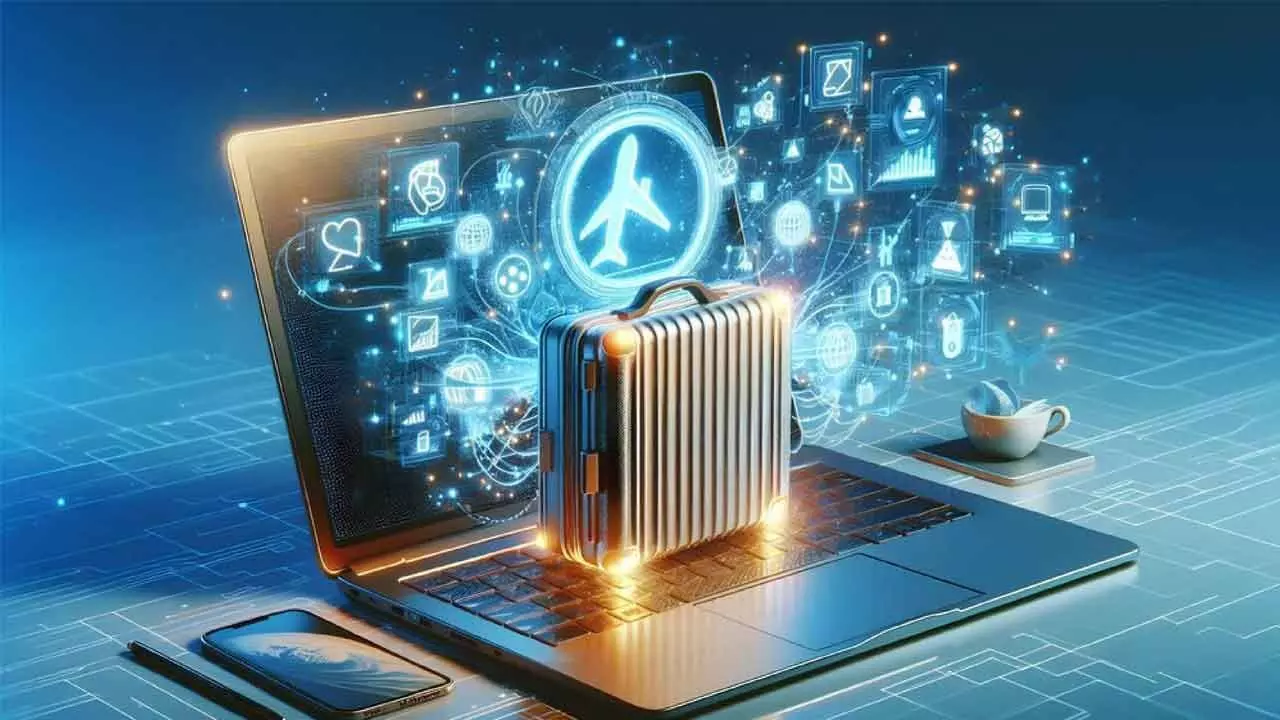AI and tourism: Shaping the future of travel and customer experience
AI is transforming tourism by providing personalised travel experiences through recommendation engines and virtual assistants
AI and tourism: Shaping the future of travel and customer experience

According to data from Statista, the worldwide AI market is forecast to exceed $1.84 trillion by 2030, with a compound annual growth rate (CAGR) of 35.5% between 2024 and 2030.
Reports also indicate that applying generative AI across industries could have an economic impact of $2.6 to 4.4 trillion, representing a boost of 15 to 40%. It could potentially raise global GDP by 7% (approximately $7 trillion) over the next decade and enhance productivity by 1.5%
The Skål India National Congress 2025, themed around ‘Connecting Tourism Leaders, Inspiring Growth’. The Congress reaffirmed my belief that India, with its unmatched richness, can position itself as a leader not only in travel but also in building enduring global relationships.
Artificial intelligence (AI) is transforming tourism by providing personalised travel experiences through recommendation engines and virtual assistants, streamlining planning and booking with chatbots for seamless reservations, and enhancing destinations with virtual and augmented reality tours. AI also improves operational efficiency through dynamic pricing and demand prediction, boosts safety with threat detection, and supports businesses with data-driven insights for innovation and revenue maximisation.
AI is widely expected to define and revolutionise the future of customer experience by enabling highly personalised, proactive, and efficient interactions across all touchpoints.
Key advancements include agentic AI, which can manage complex tasks independently; generative AI, which powers human-like conversations; and predictive analytics, which anticipates customer needs. This transformation marks a shift from reactive support to a proactive, relationship-building model, ultimately boosting customer satisfaction and loyalty. AI will define the future of customer experience.
ChatGPT, OpenAI's text-generating tool, has captured the world’s imagination since its launch in November 2022, significantly raising expectations of generative AI’s capabilities. It is already woven into the fabric of daily life, to the extent that it is rare for a day to pass without encountering some mention of it in the media or other channels. Within two months of its launch, ChatGPT counted an estimated 100 million monthly active users—a remarkable milestone. For comparison, TikTok took about nine months to hit the same number of users after its global launch, while LINE required more than 19 months.
Although expectations for AI’s potential are high, its use is not yet universal. However, it is becoming increasingly democratised because of its relative simplicity and accessibility as an open-source technology—particularly with the arrival of generative AI, including ChatGPT.
According to data from Statista, the worldwide AI market is forecast to exceed $1.84 trillion by 2030, with a compound annual growth rate (CAGR) of 35.5% between 2024 and 2030. Reports also indicate that applying generative AI across industries could have an economic impact of $2.6 to 4.4 trillion, representing a boost of 15 to 40%. It could potentially raise global GDP by 7% (approximately $7 trillion) over the next decade and enhance productivity by 1.5%.
AI in travel: Revolutionising safety and seamless journeys
AI is revolutionising tourism by providing highly personalised travel experiences, improving operational efficiency through automation and smart booking, and enhancing customer service with AI assistants and chatbots. It also boosts safety and security via biometrics and real-time threat analysis, breaks down language barriers with advanced translation, and supports sustainable tourism by optimising resource use and visitor flows. While the industry is rapidly adopting AI, it still faces challenges such as workforce shortages and the need to balance technology with human interaction.
“AI is already being used across the tourism sector with incredible results. Several major hotel groups, including Iberostar, are using AI to monitor and reduce food waste. This has recently resulted not only in a 27% cost saving but also in preventing thousands of kilos of unwanted food from going to landfill.”
According to the WTTC, AI has the power to revolutionise how businesses in the travel and tourism sector operate, offering immense opportunities for growth and innovation.
The advent of generative AI has prompted numerous companies to aim at delivering personalised information to travellers. However, without access to sufficient data, AI systems struggle to present viable solutions. In addition, unless a significant volume of individual preference data is available, personalisation techniques remain similar to those used previously, often relying on inferred preferences from clustering within large datasets.
Efforts to aggregate data through regional collaboration have begun in various parts of Japan. However, progress is often slow due to resistance from local companies concerned about sharing proprietary data with competitors. Since AI relies heavily on data, if collaboration proves difficult, could businesses instead encourage customers to directly provide their data? This concept, known as VRM, can be seen as the reciprocal of CRM.

